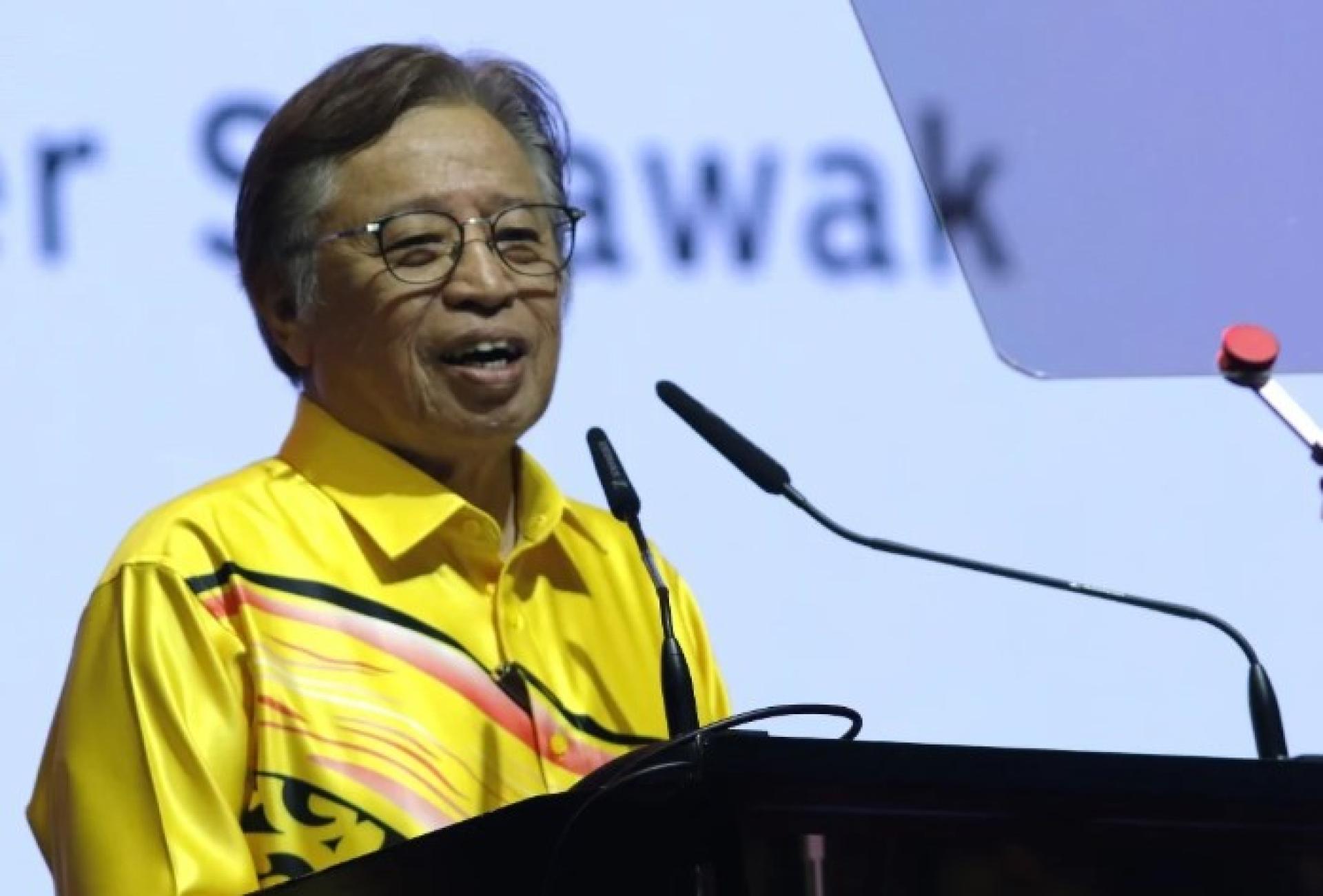(Miri, 23rd) Sarawak currently contributes around 10% to the nation’s Gross Domestic Product (GDP), making it one of the top three major economic contributors among the states in Malaysia.
Sarawak Premier Datuk Patinggi Tan Sri Abang Johari Tun Openg stated that a key pillar among these is the oil and gas industry, which is based in Miri.
"According to the powers granted by the Federal Constitution, Sarawak has begun to generate more oil and gas revenue through the imposition of State Sales Tax (SST) on petroleum products and through profit-sharing arrangements with the national oil company (Petronas) and Sarawak's own oil company (Petros)."
"With the Sarawak government holding the authority to manage oil and gas resources, state revenue has been significantly increased, enabling the GPS government to have the capability to drive more advanced and competitive development in line with the ‘Post COVID-19 Development Strategy 2030’ (PCDS 2030)." He said this during his speech at the 2025 Sarawak Day celebration conference in Miri today.
Sarawak Governor Tun Pehin Sri Wan Junaidi and wife Datin Patinggi Faziah also attended the event, which attracted about 5,000 people from all walks of life.
Abang Johari pointed out that Sarawak’s total trade volume also rose from RM136 billion in 2019 to RM199 billion in 2024, a 46% increase over six years.
"With the economy continuing to grow, I believe Sarawak is poised to achieve its target of RM282 billion by 2030, as outlined in PCDS 2030."
For this reason, he believes choosing Miri as the main celebration venue for 2025’s Sarawak Day is entirely appropriate, as Miri is an important catalyst driving both state and national economic development.
"The choice of Miri is not incidental; rather, it is to commemorate the city’s significant contribution to Sarawak’s development, especially in the oil and gas sector—after all, it was Shell that first discovered and extracted oil and gas in Miri in 1910."
"It is undeniable that the nation’s oil and gas industry originated in Miri, Sarawak, propelling Miri, since the Brooke era and British colonial period, into becoming a crucial city in Malaysia’s economic development framework."
He added that it was precisely because of the oil and gas resources being extracted in Miri that the British colonial government enacted the Oil Mining Ordinance (OMO 1958) in 1958 to regulate the orderly extraction of the resources.
Abang Johari emphasized that the Oil Mining Ordinance, since being established in 1958, has never been repealed and remains valid even after the formation of Malaysia in 1963, as clearly stipulated in the Federal Constitution and the Malaysia Agreement 1963 (MA63).
Sarawak Premier Datuk Patinggi Tan Sri Abang Johari Tun Openg stated that a key pillar among these is the oil and gas industry, which is based in Miri.
"According to the powers granted by the Federal Constitution, Sarawak has begun to generate more oil and gas revenue through the imposition of State Sales Tax (SST) on petroleum products and through profit-sharing arrangements with the national oil company (Petronas) and Sarawak's own oil company (Petros)."
"With the Sarawak government holding the authority to manage oil and gas resources, state revenue has been significantly increased, enabling the GPS government to have the capability to drive more advanced and competitive development in line with the ‘Post COVID-19 Development Strategy 2030’ (PCDS 2030)." He said this during his speech at the 2025 Sarawak Day celebration conference in Miri today.
Sarawak Governor Tun Pehin Sri Wan Junaidi and wife Datin Patinggi Faziah also attended the event, which attracted about 5,000 people from all walks of life.
Abang Johari pointed out that Sarawak’s total trade volume also rose from RM136 billion in 2019 to RM199 billion in 2024, a 46% increase over six years.
"With the economy continuing to grow, I believe Sarawak is poised to achieve its target of RM282 billion by 2030, as outlined in PCDS 2030."
For this reason, he believes choosing Miri as the main celebration venue for 2025’s Sarawak Day is entirely appropriate, as Miri is an important catalyst driving both state and national economic development.
"The choice of Miri is not incidental; rather, it is to commemorate the city’s significant contribution to Sarawak’s development, especially in the oil and gas sector—after all, it was Shell that first discovered and extracted oil and gas in Miri in 1910."
"It is undeniable that the nation’s oil and gas industry originated in Miri, Sarawak, propelling Miri, since the Brooke era and British colonial period, into becoming a crucial city in Malaysia’s economic development framework."
He added that it was precisely because of the oil and gas resources being extracted in Miri that the British colonial government enacted the Oil Mining Ordinance (OMO 1958) in 1958 to regulate the orderly extraction of the resources.
Abang Johari emphasized that the Oil Mining Ordinance, since being established in 1958, has never been repealed and remains valid even after the formation of Malaysia in 1963, as clearly stipulated in the Federal Constitution and the Malaysia Agreement 1963 (MA63).
